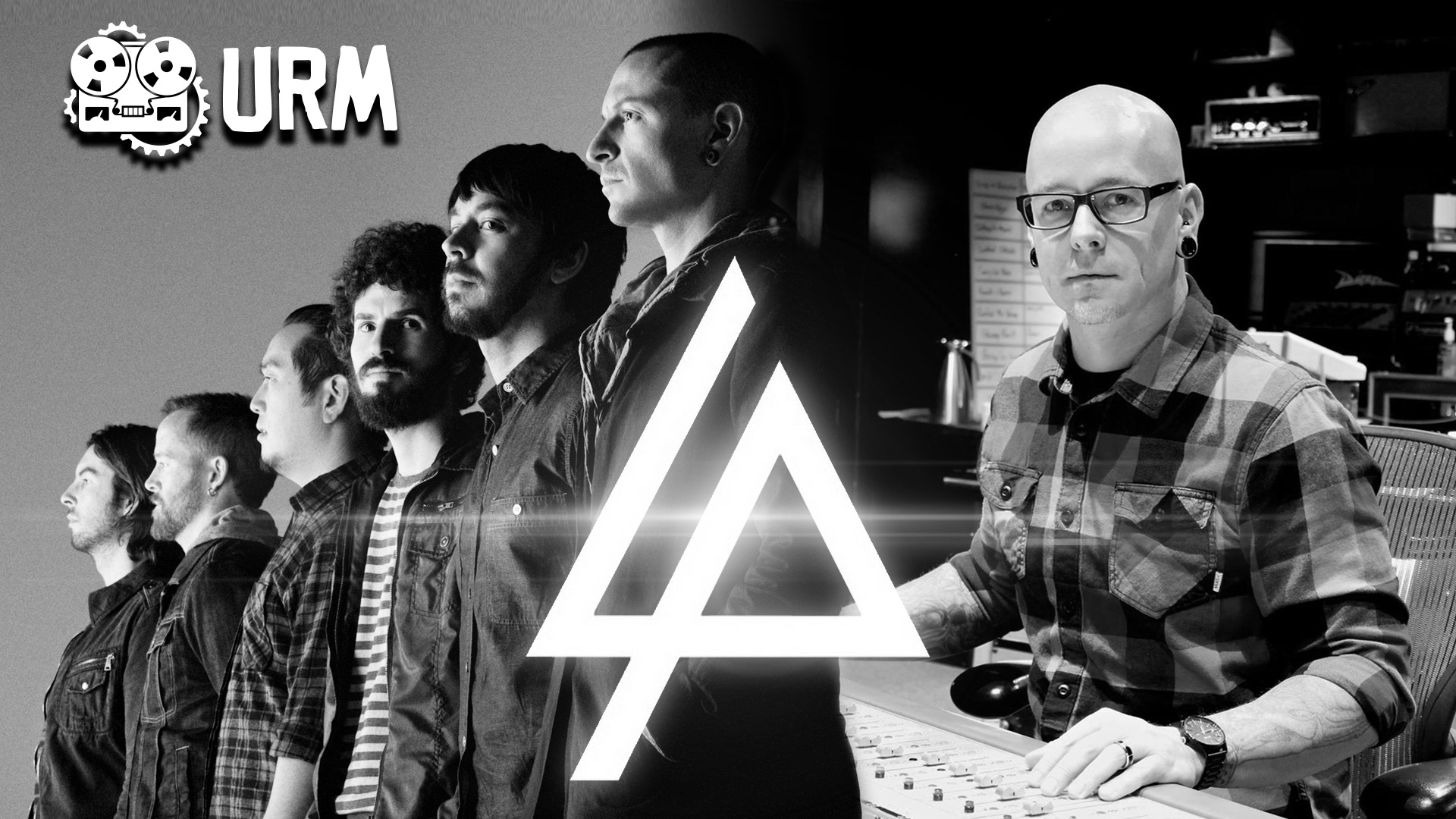
How Josh Newell Helped Linkin Park Conquer An 18 Month Long Studio Session
urmadmin
In conjunction with his appearance on The 2 Year Anniversary Episode of the URM Podcast, producer/engineer Josh Newell (Cynic, Black Veil Brides, Avril Lavigne) answered some listener submitted questions about his work with Linkin Park.
Here’s what he had to say:
What was the coffee budget like? – Phil Pluskota
Fortunately, I was not tasked with keeping track of the food or drink budget on the project, which is good because we drank a lot of coffee over the course of that album. Normally the studio coffee supply is handled by the studio. However, the band specifically requested Blue Bottle Coffee so they had the studios ordering that. Not bad. Out of the flavors we tried, Three Africas was my favorite.
How many times did you sit in your car screaming “WHAAAAT I’VE DOOOOOONE” – Connor Gilkinson
Being that I’m originally from Tennessee, I drive a truck. Show some respect for my wheels, Connor.
Did it even matter in the end? :”) – Franklin Wolf
Nothing really matters. Anyone can see. Nothing really matters… to meeee…. If given the choice between the two, I honestly prefer “Bohemian Rhapsody” to “In the End.”
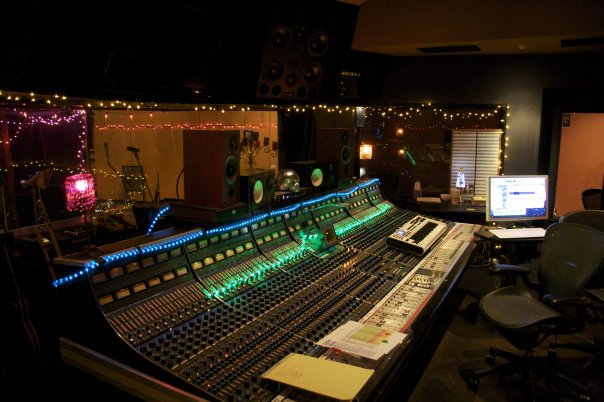
How come it took so long? – Franklin Wolf
I’ll be as concise as possible here:
We entered the studio with a skeletal idea of what the band wanted to do and a few songs/demos. The band decided they wanted to work with various collaborators on this album. Schedules had to get worked out, and initially there was a lot of songwriting going on.
Next, they started fleshing out the productions a bit and making decisions as to which direction to take each song. There were a LOT of songs written. After working on them all for a while, they’d narrow down to what they thought were the best songs (going from about 80 songs to 40 songs then to 20 songs, with around 10 finally making the album).
Now you’re basically working on 40 songs, and they’re bringing in sonic collaborators to get some new ideas and sounds. Some parts work and others don’t. Those new parts inspire changes in the productions. And nothing about the sounds or production were off limits. Want to see what the track might sound like in a different key and tempo? It got tried. There are also six people in the band giving their input so there’s nor shortage of ideas.
Vocals get cut, demo parts get replaced with keeper parts, structures change, and so on. Sometimes a song everyone liked would end up going off in a direction that people didn’t like so we’d walk it back to see what changes didn’t work. As that happened, the list of songs starts getting shorter and shorter as the stronger material becomes obvious, and then the band picked the top 15 or so for the album and finished those. It was a very meticulous process, to say the least. The album definitely wasn’t just thrown together.
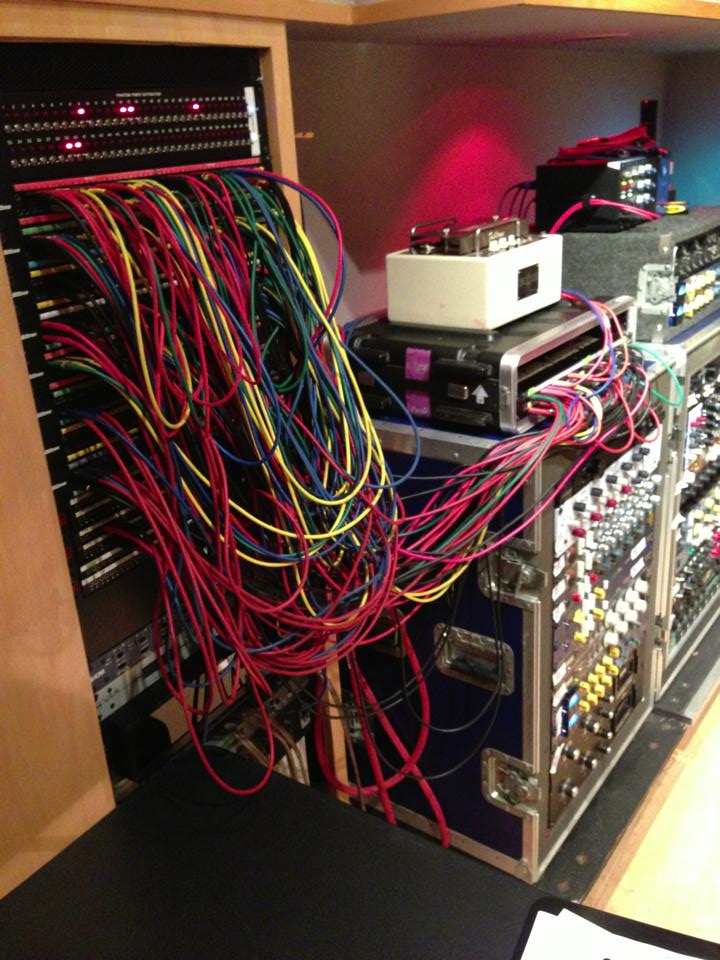 Things get complicated… and complicated things can take a while
Things get complicated… and complicated things can take a while
What are the pros/cons of working on an album for that long? How did it differ from a typical album making experience for you? Would you ever do it again (with any artist)? – Connor Gilkinson
Pros: For the most part, you aren’t battling a deadline which takes some pressure off. You also have room to abandon a song for the day if you’re getting frustrated with it or losing perspective. There’s no rush or need to push through and be miserable. If the band’s really having an off day, you can all take off and regroup the next day.
From my personal angle as a freelancing engineer, it’s really nice to not have to worry about drumming up work for an extended period of time. There’s a steady paycheck, which means you’re not stressing about finding/scheduling more gigs. We also took weekends off so it was nice to be able to schedule time to spend with my wife. When you’re constantly going from gig to gig where you don’t know when you’ll be working, it can be hard to plan social events out in advance.
Cons: It’s a really long time to spend in a studio with people. I like the band and am good friends with the rest of the engineering crew, but you’re talking about spending 10-14 hours a day, 5 days a week with the same people for a year and a half straight. And you’re doing that in a room that is designed to minimize outside noise and light. You can get a little stir crazy. It’s also a really long time to focus on a batch of songs, particularly in the last few months of the album. You’ve heard everything so many times, it’s hard to keep a fresh perspective on things.
It’s also a major commitment, discography-wise. There’s a year and a half gap in releases for me because I was on one long record. There were a few other engineer projects that came up during the course of the album that were of interest that I just couldn’t take. So you’ve got to hope the album you’re on does well because it was such a commitment.
This comes up briefly in the podcast, but we worked on A Thousand Suns longer than this record. However, that album was broken up into shorter stints. The longest being six months, I believe. But yes, I would do this again. I’m not one to turn down work, and getting to work in class A studios for that time period was fantastic, but it’s definitely not something I’d want to rush into doing again soon. One of the things I like about freelancing is the variety of projects I can work on in a year.
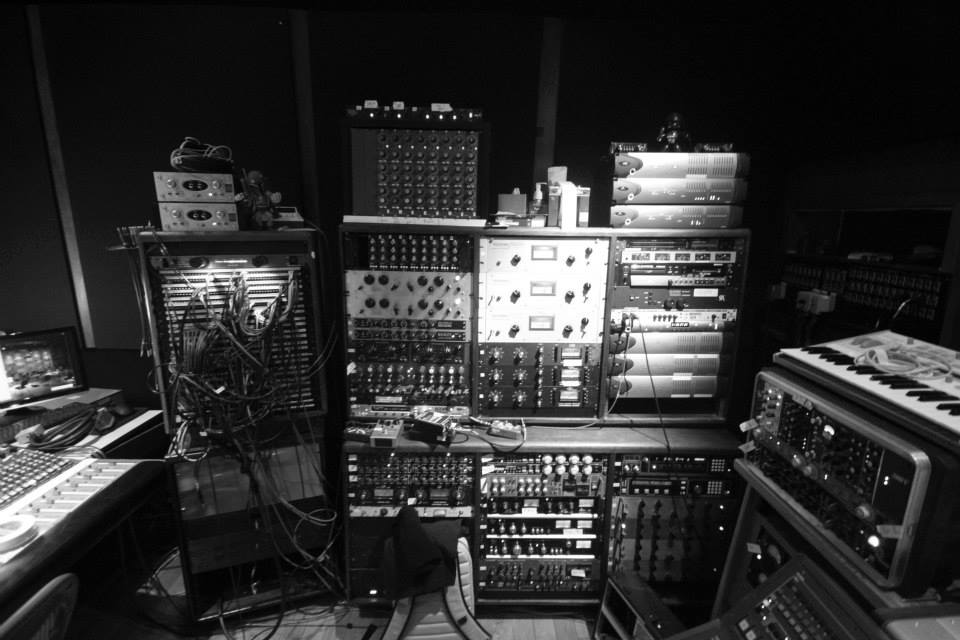
Piggy back on this question, How do you and the band keep focus on the vision of the album for that long? – Patrick Graf
If I’m being completely honest, there were times that I had real trouble maintaining perspective on tracks. Since there were two engineers, sometimes we’d swap off tasks if one song in particular was being worked on for a few days straight. That seemed to help. Fortunately, I wasn’t the producer so the fact that sometimes I couldn’t tell if I liked a change better because it was actually better or just because it was new wasn’t an end-all, be-all. And I could be honest with the band about that when it came up.
As for the band, different people in the band had different approaches. Overall as a band they would meet weekly to discuss the songs, and we’d keep a going DropBox of every version of the song (upwards of 20 versions for most songs) so it was possible for them to go back and reference what had been done. I do think the overall vision for the album changed a bit as it went along since the band didn’t come in with all of the material written and demoed.
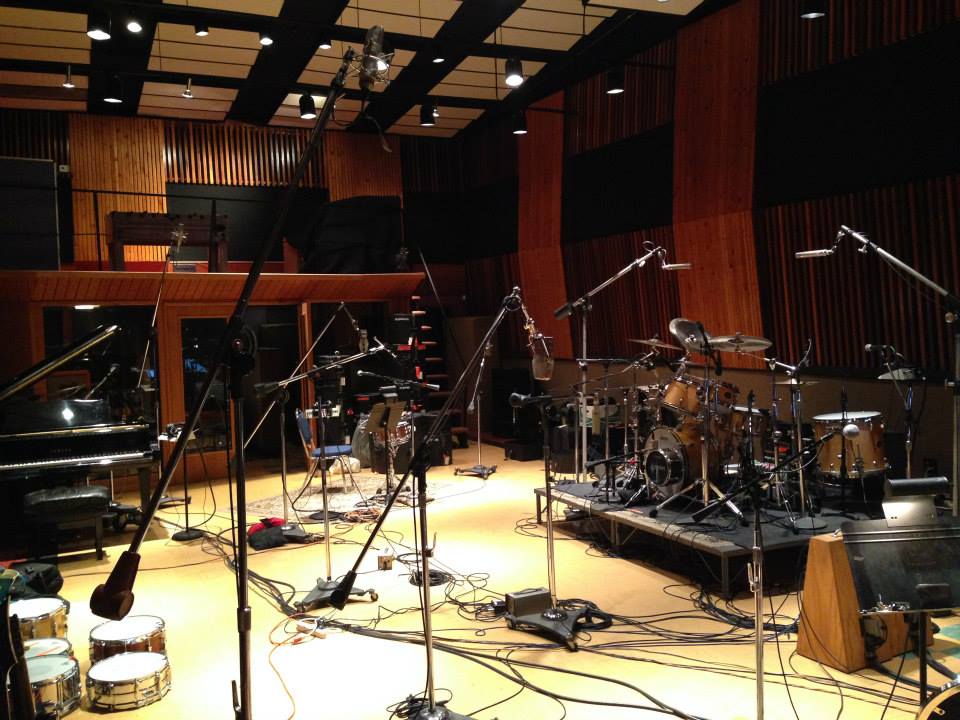
How do you combat the issue of wanting to throw out material constantly, because in that time you feel like you’ve become a better writer? – Connor Gilkinson
I guess that’s more of a question for the band. There were a few songs written later in the album that knocked older favorites out, but there was somewhat of a set period allocated for writing, then the rest of the time was spent flushing everything out. The best songs somewhat float to the top that way, and the entire band has input on what songs they like best and why so that serves as a system of checks and balances.
What’s the secret to that classic phat Linkin park rhythm tone?? – Austin Shafer
If you’re talking about their first few albums, I’d imagine it’s a combination of the guitar, a Mesa and Marshall through a Neve console with Andy Wallace mixing. In later years, it’s really depended on the album/song as to the guitar chain. As of late, there’s been a lot of Fender Custom Shop Strat through an Orange TH-100 into a Orange 2×12”. Ethan Mates, one of the band’s engineers, has a massive and amazing collection of pedals that are always on hand. Ethan’s Gibson SG has been in pretty heavy rotation for rhythm tones in the last few albums as well.
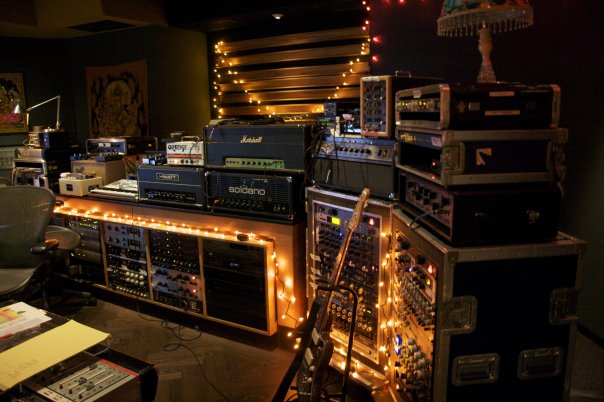 Phat tones, you say?
Phat tones, you say?
What did you find was most effective for cataloguing and keeping records? – Maxwell Robert Butterfield
This is pretty low tech, but for recall notes, we take photos with a digital camera, print them out, and put them in 3” binders with song titles for the dividers. Every part that gets tracked has its recording chain and settings documented.
For the songs, we used a combination of DropBox documents and Google documents, as well as the assistant and engineers keeping a running log in a notebook in the computer. That way, every day’s work is always unhand and easily accessible. The band also likes the old marker board method for keeping track of what songs needed parts tracked.
We used Synchronize Pro for syncing up hard drives at the end of the day. The program looks at your source folders and your backup folders, scans them, and then only copies the new files you’ve created during the day. If you move files or delete them off of your primary drive, it will notify you before deleting anything off of your backup drive so that you don’t accidentally erase anything.
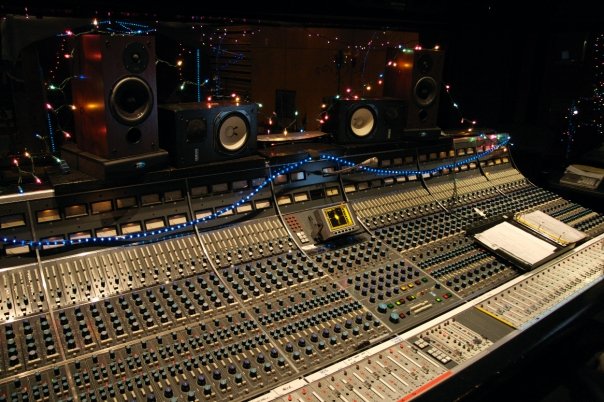 Get good at keeping notes!
Get good at keeping notes!
Was it intimidating working with a group of well respected musicians/engineers? – Rodney Altenbaugh
Not really. I’ve been working with Linkin for nearly a decade, and I have known them since I was a studio runner at NRG Studios when they were doing Meteora.
There have been a few people who’ve worked with us along the way who I’ve gotten a little star struck about, particularly Andy Wallace, but I’ve been very fortunate to work with a number of well-known engineers over the years so I can keep my nerves in check. The guys are also really nice and easy to get along with so it’s not that intimidating from a client angle.
With an artist like Linkin Park who have been known to write several songs and change how they write and experiment with their songs, how do you funnel in all the information and pick which riffs are better then another’s when writing situations like that are sure to have so many great ideas? – John Maciel
While the engineers do get to have some feedback in the process and are encouraged to give our opinions, at the end of the day, especially when they’re self-producing, it’s the band’s call. They all meet regularly in the studio to listen to the existing songs as well as any new songs that get written, and they make their decisions as a band as to which ones are best. There are disagreements at times, wouldn’t say fights, but they do a good job of putting what’s best for the band overall first, as well as being polite when critiquing each other’s writing.
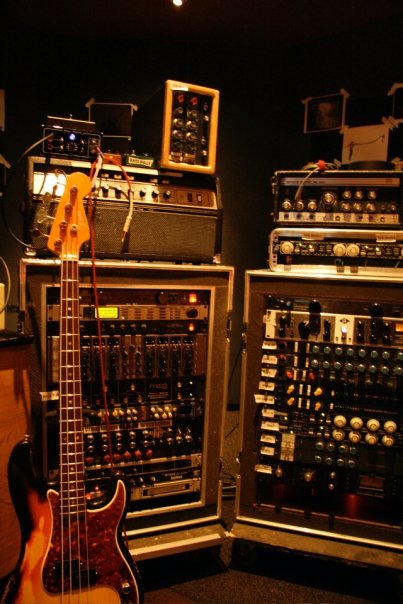
How do you approach arranging a song with two lead vocalists? Are there any things you need to consider when having two lead vocal parts as opposed to a lead vocal and background vocal? – Eric Bert
At times, it’s as simple as, “We should rap here, Mike will do it, and there should be screaming here, so Chester should do it.” As a general rule, though, Chester is the lead singer as far as the division of labor goes. Sometimes it comes down to whose vocal range works better for a part, or there are other instances where both guys will sing the song then they chose whose vocal works best for the material.
How do you keep focus and interest on a project that can take longer then say “normal” recording cycles? – John Maciel
When you’re in the studio working, it’s good to know to take breaks or when to walk away from a song that’s frustrating you. Fortunately, with the time we had to work on it, that was possible.
Outside the studio, I found it best to really leave work at work and try to not think about the songs. I’d listen to podcasts or different types of music (got back into jazz) when not working, and in general tried to focus on non-music hobbies. The other engineer and I actually got into re-building 1980s BMX bikes while doing the album. It was a fun thing to do that was creative without it being music-related.
I also took on a few lower-budget weekend side mix projects here and there to have something to work on as well. Exercised a different set of engineering skills and kept my mix chops up.
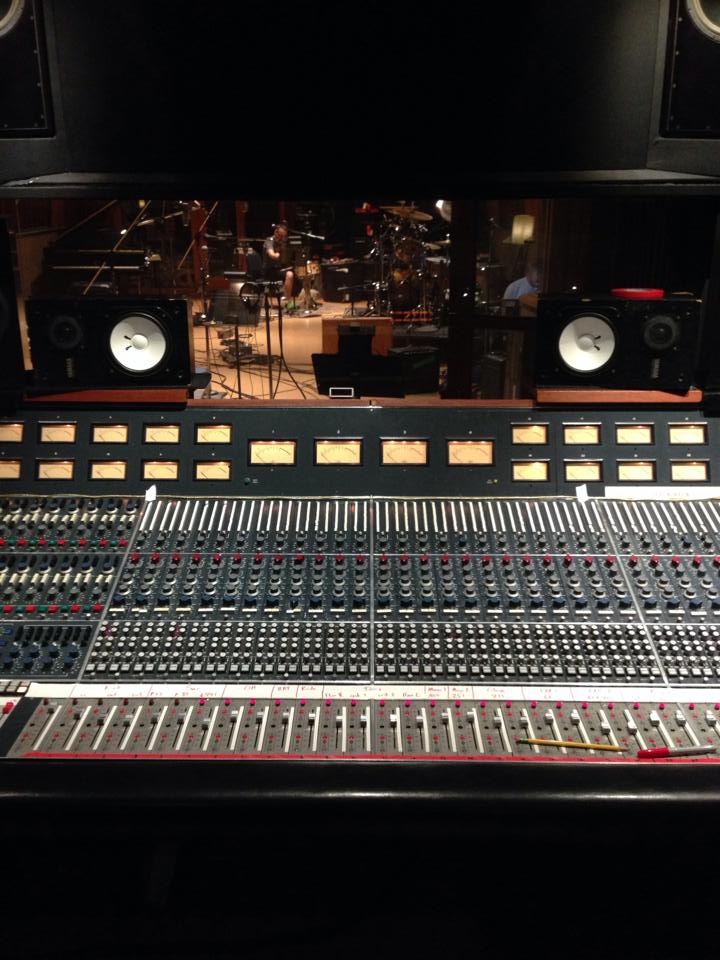
I remember Mike Shinoda making a post about how Pro Tools would crash every know and then. Was it a simple restart to fix the issue or was a little bit more complicated than that? Thanks! – Patrick McConkey
This comes up in the podcast. I think the fans took Mike’s tweet a little too seriously, as he was just venting on a day when Pro Tools was being a little extra ornery. I’ve made similar tweets myself, I just have significantly fewer followers on there. If I recall we were having some issues with some virtual instruments at the time. It wasn’t anything particularly memorable or notable. Pro Tools doesn’t seem to clear out the disk cache properly on the newer HDX versions so opening multiple sessions running heavy virtual instruments could get a little weird. Generally a restart fixed the problem. At worst, we’d have to trash preferences and restart.
How does your perspective change working on such a long timeframe for a project? Was the year long schedule set up for the workflow or a result of working until the songs were right? Any tips on file management you had to develop for maintaining sanity and no bullshit? – Shaun O’Shaughnessy
Honestly, you burn out a bit here and there. I guess the strangest part was that there really wasn’t a deadline for the bulk of the project. Usually there’s a looming due date that will keep you focussed. It does leave you with the opportunity to really explore all of your options sonically and arrangement-wise when given that time and those resources. The session was actually over a year, primarily due to the fact that the guys were embracing a new approach to making a record as well as a new sonic direction. They write in the studio as well so that’s a big part of it.
As for file management, there were multiple people keeping pretty extensive notes as we worked. And there are a lot of backups and redundant backups. But it wouldn’t be uncommon to have three or four different versions of a song/Pro Tools session going at once that eventually would need to get merged. That got a bit hairy at times, and it depended on who we were getting files from as to how we’d keep up with their work. If it was one of the primary engineers in the session, we’d label and color code tracks that needed to be imported or were new.
We’d do the same thing for any audio that came in from outside collaborators, as well as notating who it came from in the comments section of the mix/edit windows. We also would use an ascending number system and initials to keep track of who’d created a version of a session. For example: “Song Title 2.1 JN” would mean that was the 21st version of a song and that I was the one who’d created it.
For sanity, make sure you get a good night’s sleep as often as possible. After stressful days, I’d usually come home, have a glass of whiskey, and read, watch some Netflix, really anything I could other than think about work. Not in a bad way, but you just have to let it go some times. Or I’d focus on non-musical hobbies like the aforementioned BMX project or going hiking with my wife on weekends.
I also made it a point to take my dogs for a good walk (a couple of miles) every morning without my cell phone so that I was getting that bit of minimal exercise and sunlight. The lifestyle that goes along with this profession- extended hours sitting at a computer, in the dark, eating takeout food, staying up late, not sleeping enough- really isn’t all that great for you so it’s important to try to take care of yourself on long sessions.
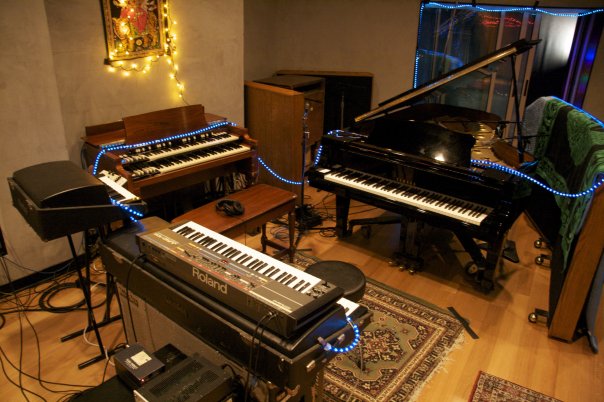
Was there ever a point where the vision of the project changed or a body of work was scrapped? Did any other hurdles present themselves, if so, how did you deal with it? – Chad Slee
There was never a point where we yelled, “Screw it, we’re starting over!” or anything, but there were times a song would get to a point where it didn’t feel like it was working. When that happened, we’d go back a few versions of the song until we found the last point that felt inspired, would open that session, and then start working from there. So we did backtrack every now and then. Or there were times when a new part would inspire a completely different approach to a song so the production would completely change. And sometimes that worked, and other times you’d go back to the older version.
Did he find it hard for himself and the band to maintain focus, and maybe more importantly, creative excitement for the music, during such a long production schedule? – Jordon Popp
For me, at times, yes. And there were times you could see people losing focus/interest/excitement on the album as well. At times like that you either take a break or power through. Most everyone became very aware of this potential issue as we got farther into the project and tried to remain cognizant of it. For the band, not everyone came in every day. For the engineers, we’d try to swap tasks (someone would edit while the other one covered tracking). Little things like that.
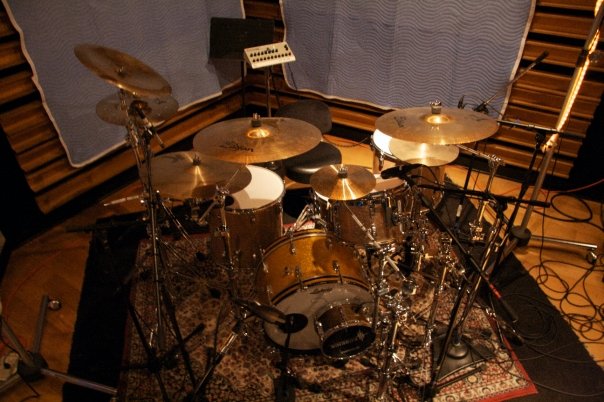
Following the discussion on the last podcast about Andy Wallace, who mixed this record and did you gain any insight into their process? – Michael Macdonald
Sorry, but I’m not sure that I’m allowed to say who mixed the album yet. I can say that it wasn’t Andy Wallace and that I wasn’t present for the mixing process this time around.
How the hell do you calculate that fee? I guess they basically just finance your life for that entire time? – Sascha Veeno
I agreed on a day rate with management when they approached me about the album. This being my fourth album with them, I had a pretty good grasp on what the average work day would entail hours-wise (although, definitely not how long we’d work on the album) so we based it around that. But yeah, I suppose I was basically an employee of Linkin Park for a year plus there.
How do you maintain perspective and interest in such a long project? – Brooke Johnson
Think I pretty much covered this already. To summarize: Embrace the time you have outside of the session and leave work at work. When you’re in the studio, know when to get up and walk around or go outside. Avoid extended hours if possible; know when you can come back to an edit/part/song/whatever the next day because you need to go home and rest. Swap from song to song in a day if you’re stuck on one or feeling burned out.
For more awesome tips on becoming a better producer, head on over to the URM Academy blog and subscribe to our podcast.
Listen to the 2 Year Anniversary Episode of the URM Podcast with Josh Newell HERE
 Nail The Mix is our online mixing school that gives you REAL multi-tracks from REAL bands, plus a mixing class from the producer who recorded it. Past guests include Periphery, Chelsea Grin, Machine Head and State Champs. Join now for instant access!
Nail The Mix is our online mixing school that gives you REAL multi-tracks from REAL bands, plus a mixing class from the producer who recorded it. Past guests include Periphery, Chelsea Grin, Machine Head and State Champs. Join now for instant access!

